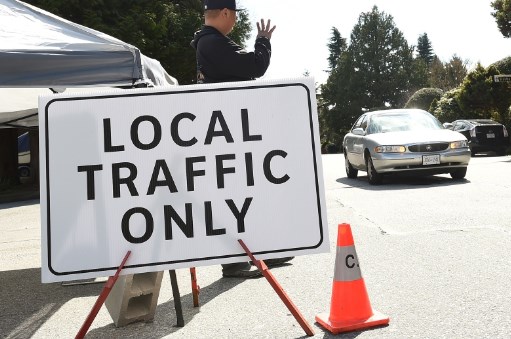The Musqueam Indian Band is reporting its first cases of COVID-19 with three people living on the reserve in southwest Vancouver recently testing positive for the virus.
Chief Wayne Sparrow said in a Jan. 7 video address to his members on the band’s website that the community made it through all of 2020 without anyone living on the reserve being infected with the disease.
“We’ve been talking around the leadership table that it wasn’t if, but it was when we would have a case that was on our reserve,” Sparrow said. “Well that day has come.”
The chief told Glacier Media by telephone Monday the three cases involve two parents and an adult daughter who live in the same house. None has required hospitalization, said Sparrow, noting the band’s health department and Vancouver Coastal Health officials continue to investigate.
“I’m going to be phoning them today to see how they’re doing,” he said.
Coreen Paul, the band’s health director, said the family isn’t clear on how or when they contracted the virus. But they quickly supplied all information to health workers to prevent further transmission of the disease, Paul said.
“It could be as simple as being at the grocery store, being at the gas station or anywhere,” she said. “We do still go and get our groceries and we still do go and get gas — all the necessities — but you do tend to relax after a while.”
Contact tracing was done, and all people connected to the family have tested negative for the virus, said Paul, noting the band has its own primary care clinic, where COVID-19 testing is done. Vaccinations will also be done on the reserve, she said.
The First Nations Health Authority told Paul Dec. 31 that members will likely be vaccinated in four to six weeks. About 850 members and their families reside on the reserve, with upwards of 150 considered elders — 60 years old and older.
“There are definitely some people who are frightened,” said Paul, when asked how residents are taking the news about COVID-19 in the community. “But I think the videos from the chief and council have really helped people to not panic.”
Allyson Fraser, a member of the band’s council, urged members in a video message to be diligent and follow the guidelines of Provincial Health Officer Dr. Bonnie Henry to avoid non-essential travel, physically distance, wash your hands and wear a mask.
“We are all trying our best and we are under high anxiety, and it is sometimes difficult to navigate through these situations, but working together to support each other and be loving and be kind and we will get through this,” Fraser said. “We are so close to seeing the light at the end of the tunnel, and we will get through this together.”
Added Fraser: “We need to support our members who have COVID-19 through one of the toughest times in their life. I implore you to be kind, compassionate and caring as a people.”
Checkpoints set up around the band’s reserve last March remain to help prevent transmission of the disease. The band has set up a COVID-19 hotline for its members and plans to provide daily updates on the status of the cases on the reserve.
Sparrow said his nephew is also producing videos on the band’s website to get a message to the community’s young people. The chief described the community as closely connected, pointing out he has sisters who live on either side of him and an aunt across the street.
The velocity of the virus is something that concerns him, with the pandemic a reminder of the devastation that disease can have on an Indigenous community. The smallpox epidemic in the 1800s killed thousands of Indigenous people in B.C.
“The risk of a virus like this spreading is drastically higher on a First Nations reserve than it might be at 41st and Dunbar,” Sparrow said.
Dr. Bonnie Henry is expected to give an update Monday afternoon on the number of new COVID-19 cases from the weekend. As of last Friday, there were 6,118 active cases in the province, with 358 people in hospital, 75 of whom in intensive care.
From Jan. 1 to Jan. 7, 535 new cases were reported in Vancouver, which includes the Musqueam reserve, according to data on the B.C. Centre for Disease Control’s website. Vancouver has had a total of 8,958 cases between Jan. 1, 2020 and Jan. 7, 2021.
@Howellings



